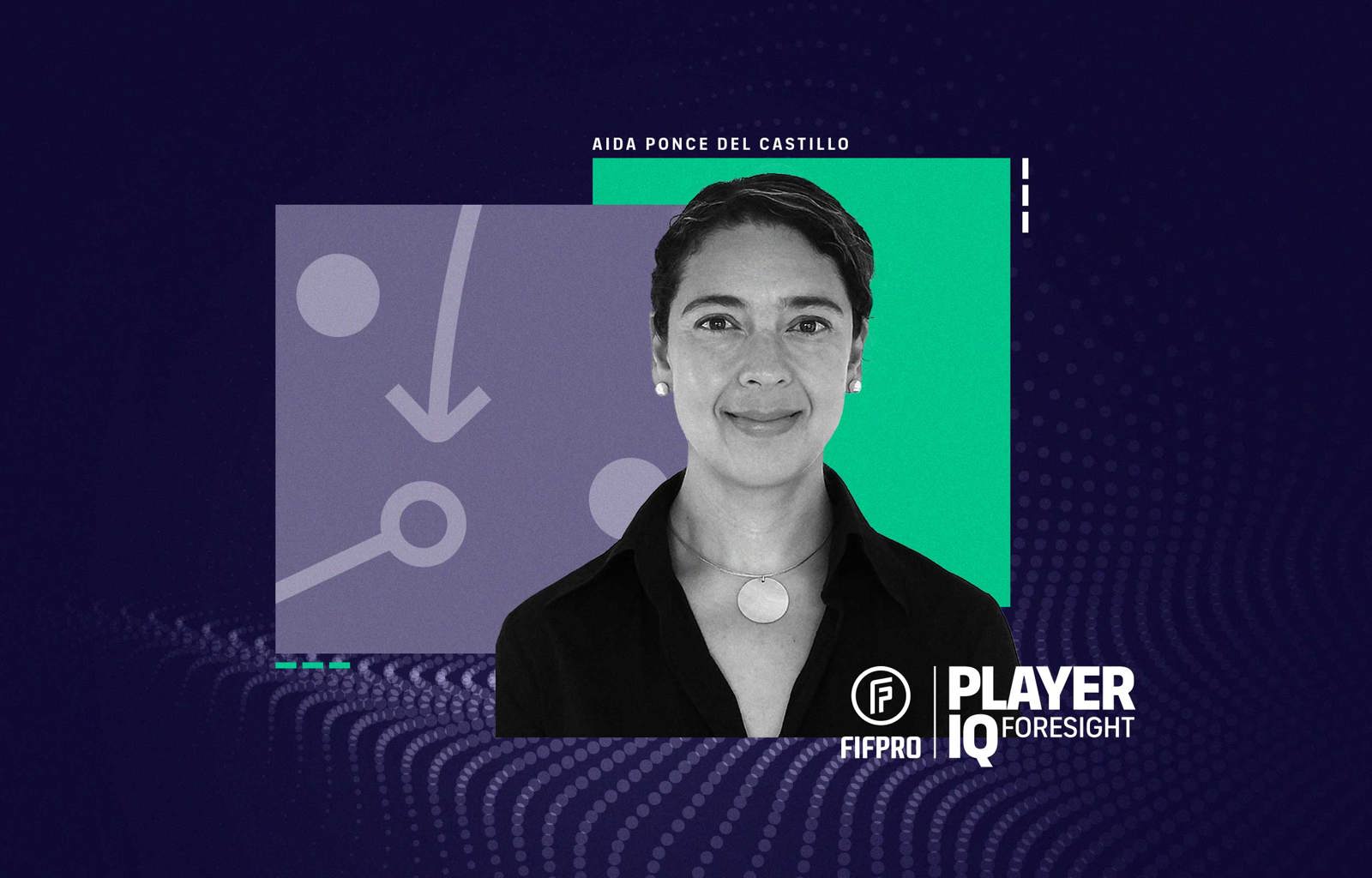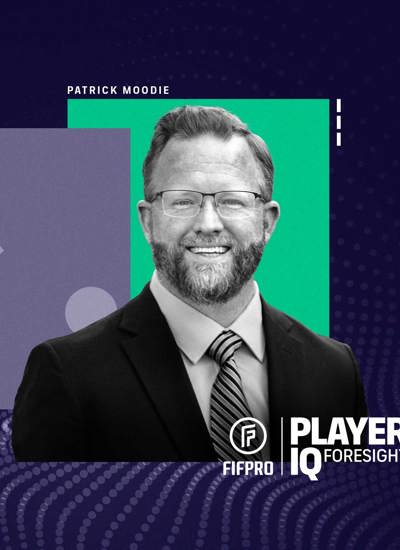
Our guests’ opinions do not necessarily reflect the position of FIFPRO
Technology transforms our workplace. It promises opportunity for some, provokes fear in others, and leaves no-one untouched. It asks difficult questions of all of us: who holds power, how are they using it, and how do we hold them to account? And when the speed of change accelerates – when the next wave of artificial intelligence is already here on our phones – we begin to ask whether our governments and regulators can even keep up. Who will defend our interests? How can we protect our fundamental rights, as human beings and as workers?
Data On The Pitch
Football is no exception. In the space of a few years, digital innovation has reshaped the workplace around players’ data. From the training ground to the stadium, our ability to capture, measure, and analyse every detail of a player’s athletic performance – and every reaction of their body, over one game or an entire season – has advanced at breath-taking speed. Each new camera, each new sensor brings sharper measurement and richer data. For players and coaching staff alike – not to mention the commercial interests of broadcasters, games designers, advertisers, and sponsors – the potential is vast.
As the data becomes clearer, richer, more detailed, new applications can help to manage the players’ workload, pick up the signs of fatigue, and prevent injury; help the coaches and managers to fine-tune strategy and matchday tactics; help the scouts to find just the right talent from a database of thousands. Artificial intelligence, as it develops, will create new tools that predict critical aspects of a team’s performance; the implications for the sport, its spectators, and its commercial partners are mind-boggling. As long as humans are playing it, sport will remain unpredictable, but the prospect of finding a new competitive edge, on and off the pitch, will always spur innovation.
Amid all the noise and excitement around data, a fundamental question arises: players, as workers, have rights, so how should they be defended? More broadly, what is the best outcome for the profession as a whole, across Europe and beyond? How the players and their unions answer these questions may shape the sport for years to come.
Player data rights: Why unions have an integral role to play
Human Rights and Employment Laws
When it comes to the law, no-one is starting from scratch; far from it. Across Europe, a dense network of treaties and regulations already exists: from the European Convention on Human Rights, which safeguards the freedoms of more than 670 million people across 46 countries, to the European Union’s health and safety directives, which regulate most corners of the workplace; not to mention the myriad labour laws and practices of individual countries.
Whether these laws are up to date, fairly applied, or sufficient is the stuff of national politics. What is clear, however, is that the digital revolution calls for an urgent revision of all laws, starting with our basic rights.
The European Union’s General Data Protection Regulation (GDPR) was the first ground-breaking initiative and, arguably, now a global benchmark. In force since 2018, it aims to ensure that individuals enjoy full control over their personal data. It prohibits the collection and use of the most intimate personal information, such as our health and biometric data, our DNA and voiceprint, our religious beliefs and political views, our memberships and affiliations. In short, GDPR not only signifies that no-one is for sale; it reaffirms that we are unique human beings of inviolable dignity, free to be who we are.
And yet, even with the benefit of these new protections, athletes and their unions, in Europe and beyond, face difficult questions. Often, these are questions of commercial power, political decision-making, and governance. Who has access to the athletes’ personal data, beyond their employers? In professional football, the number of third parties with commercial interests is already huge and only growing.
Where is the players’ data stored, and what does this mean for their legal rights? GDPR protects all players employed within the European Economic Area as well as all EU citizens playing abroad – but what about the rest of the world? And how do athletes protect themselves against data breaches and misuse?
Why data protection authorities are now looking at football
A Manifesto For Privacy
In 2023, as artificial intelligence writes the headlines (perhaps literally), athletes and their unions need to tackle these questions head-on. They need a set of principles to guide them. Having worked on the legal and ethical aspects of these issues and how they affect different parts of our society, I believe that athletes can negotiate a way forward. Through collective bargaining and in the design of their employment contracts, they can secure their human and labour rights and still exploit the sporting value of their data. The following ten principles represent a manifesto for privacy – a code of conduct which says that all employment contracts and collective agreements should:
- guarantee that any employer or third-party full respects European and national laws when they use athletes’ data;
- ensure that athletes retain full control of their data and how it is used;
- negotiate collective agreements that establish common standards across entire sectors;
- set clear limits on the sharing of personal data;
- secure effective measures for rendering personal data anonymous;
- ensure that employers carry out impact assessments and consult trade unions;
- investigate whether decisions affecting players are being mediated by applications using artificial intelligence;
- establish a process to contest automated decision-making;
- bring privacy and data protection into the rulebooks of sports governing bodies;
- encourage athletes to bring complaints to national data protection authorities.
No manifesto alone solves a problem. Progress relies on the trust and good will of all parties. In professional football, the players and their unions will have to bargain hard to secure their legitimate interests; they are not the only players at the table.
But I hope these ten principles might guide them through the negotiations and remind them of what is possible, necessary, and fair. They should remember, above all, that they are workers and have a right to privacy – and that’s not negotiable.

About
Aida Ponce Del Castillo
Aida is a senior researcher at the European Trade Union Institute (ETUI) and a qualified lawyer specialised in science and technology. She holds a Masters’ degree in Bioethics and a Ph.D. in Law. Within ETUI's Foresight Unit, her research focuses on strategic foresight and on the legal, ethical, social and regulatory issues of emerging technologies, including the governance of Artificial intelligence. Aida is also a former International Open Water swimmer, having represented Mexico.


